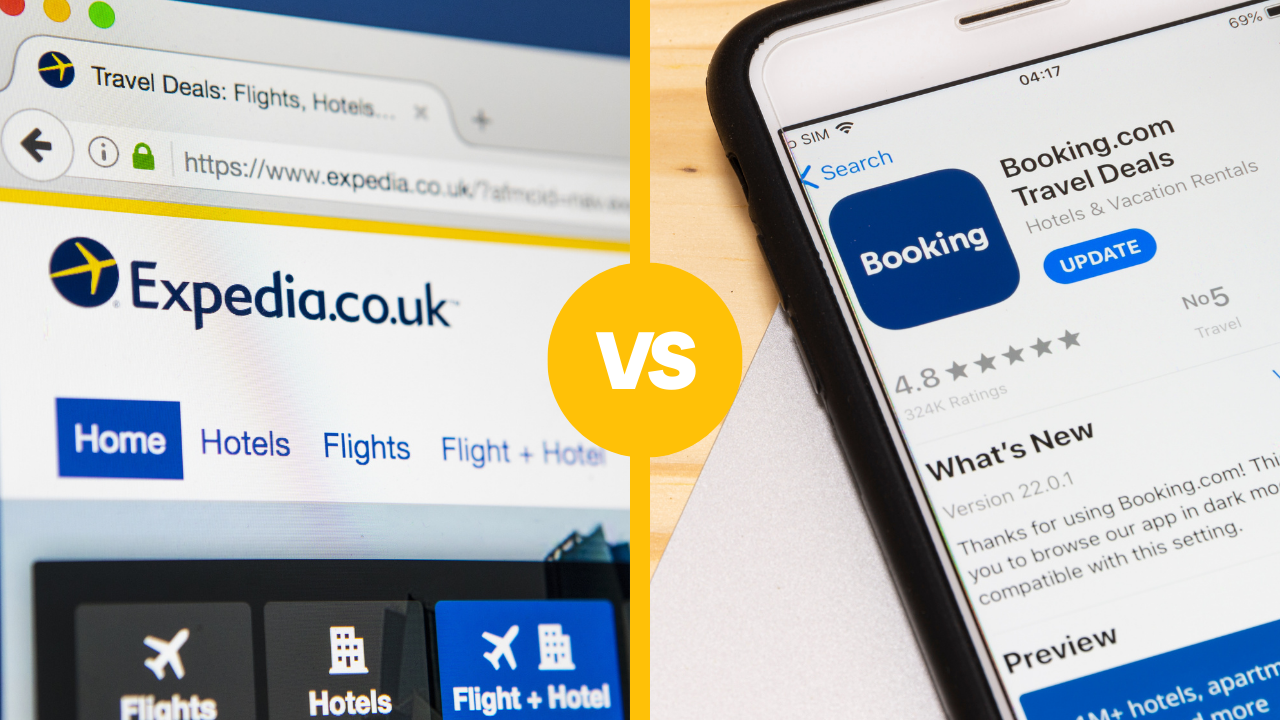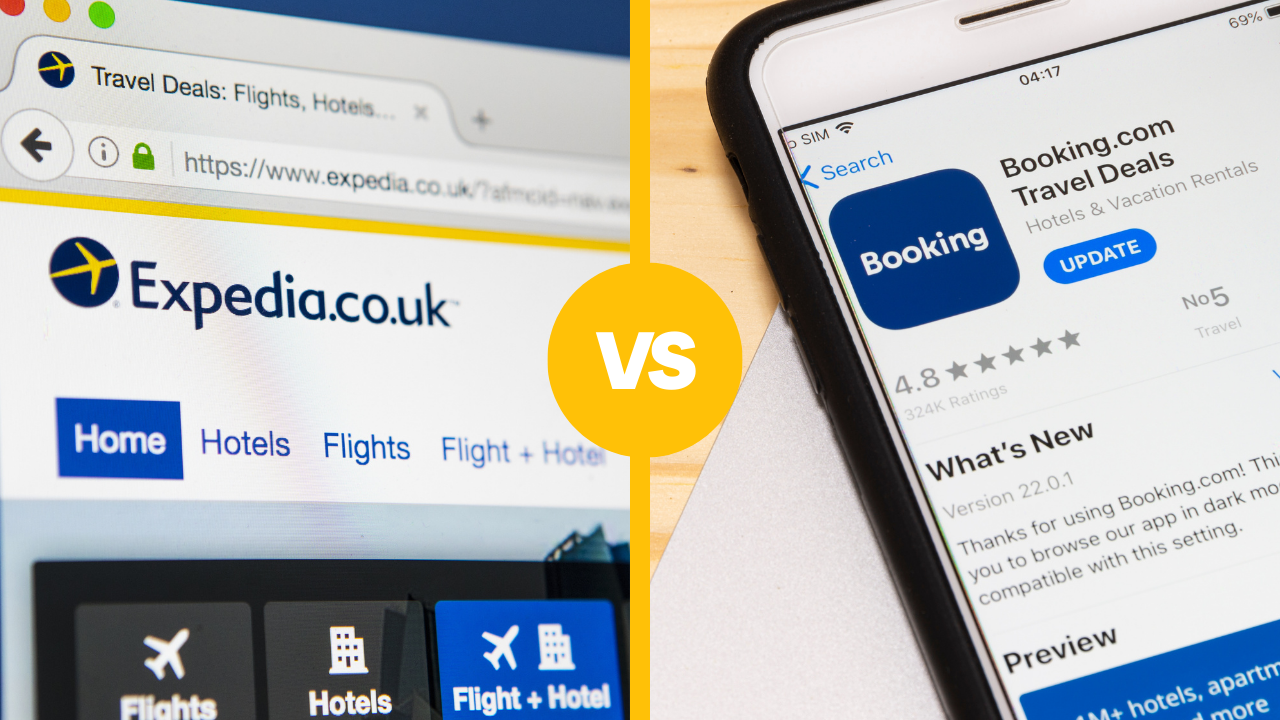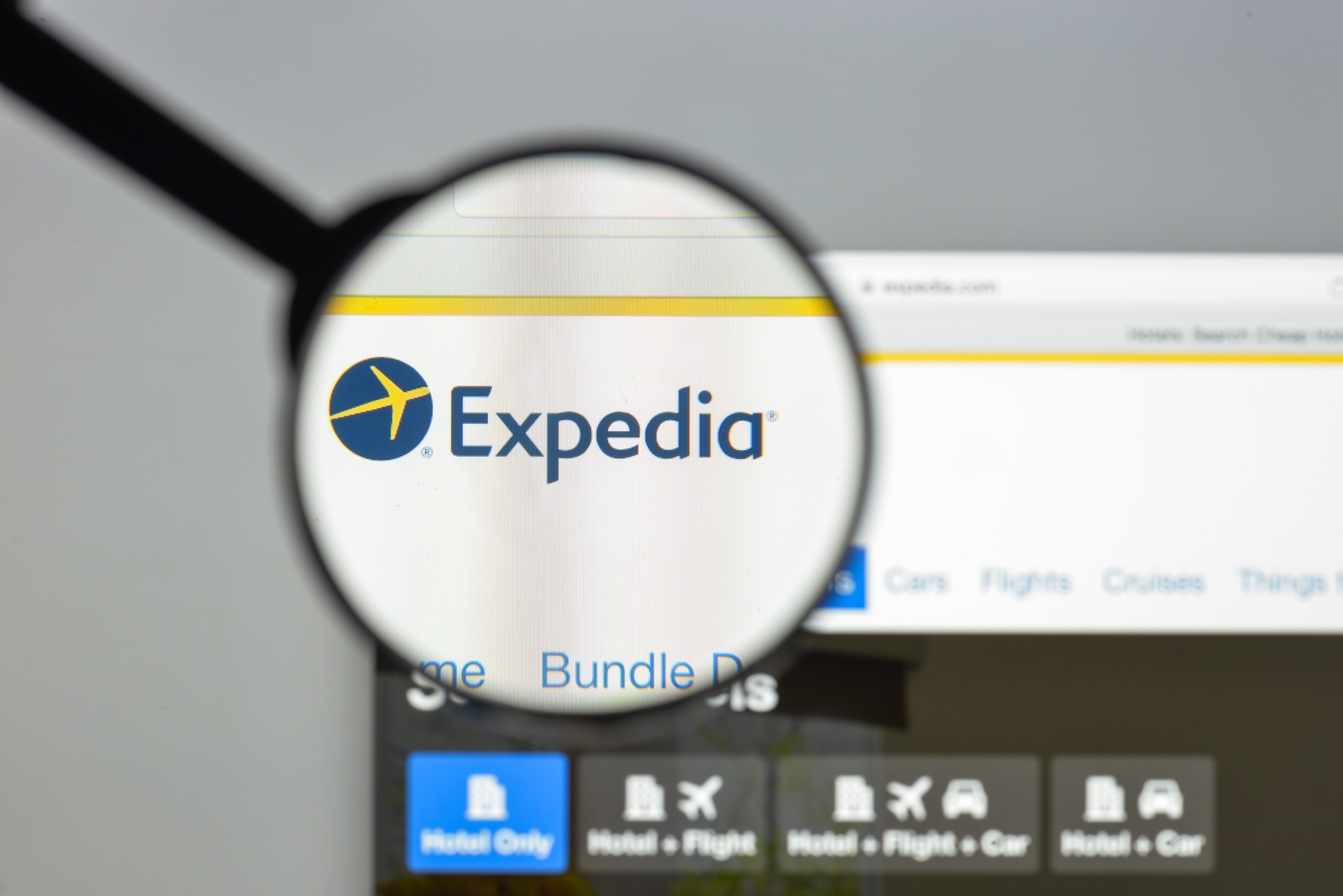Boost Your Short-Term Rental Success: The Ultimate Booking.com vs Expedia Guide

Booking.com and Expedia are both industry giants, each offering a vast global reach and features designed to simplify the listing and management process for hosts. Booking.com, established in 1996 in Amsterdam, is a leading digital travel platform, with over 28 million listed properties. On the other side, Expedia, launched in 2001 as a Microsoft division, is a global travel marketplace offering a wide array of travel products across various platforms.
Choosing the right platform can significantly affect your rental business’s success. The right choice can boost visibility, improve guest experience, and drive more bookings, thus increasing your rental income. In contrast, a poor decision may lead to lost opportunities. This blog provides an in-depth comparative analysis of Booking.com and Expedia, equipping you with the knowledge to choose the platform best suited to your business goals. Let’s set the course for your short-term rental success.

Understanding Booking.com
History and Overview
Booking.com, part of Booking Holdings, has established itself as a preeminent player in the online travel industry since its inception in 1996. Based in Amsterdam, it has grown to become more than just a hotel website or booking site.
It is a comprehensive platform where users can compare prices of a wide array of travel-related services, including accommodations, flights, rental cars, and more, available worldwide. Not just limited to particular hotels, Booking.com’s listings encompass a wide variety of properties, making it a preferred choice among online travel agents.
Key Features of Booking.com for Hosts
- Listing Process: The booking process on Booking.com is straightforward and user-friendly. Property owners can list their properties with ease, and the platform’s search engine visibility often outranks even a hotel’s direct website. This increased visibility can be particularly beneficial for small to medium-sized properties.
- Pricing Model and Fees: Booking.com operates on a commission-based model, where hosts are charged a percentage fee per booking. While the platform offers competitive prices, it’s essential for hosts to consider this fee when pricing their properties.
- Review and Rating System: Booking.com features a robust review and rating system where only guests who have completed their stay can leave reviews. This ensures credibility and accuracy in the feedback.
- Guest Communication: The platform provides a messaging system where hosts can directly communicate with their guests, enabling them to manage inquiries effectively and build a rapport with their guests, potentially leading to future bookings.
- Property Management Tools: Booking.com offers a comprehensive set of tools that assist in managing properties. From the ability to manage availability calendars, and set customized pricing rules to integration capabilities with other tools like Google Flights, the platform empowers hosts to manage their listings effectively.
Pros and Cons of Using Booking.com for Property Owners
Pros
- Vast reach: Booking.com’s significant global reach can expose properties to a large and diverse audience.
- Feature-rich: Offering several value-added features like free breakfast and free cancellation can make listings more attractive to potential guests.
- User-friendly interface: A simple and intuitive interface makes the process of managing listings more straightforward.
Cons
- Commission-based fees: The commission fees can be high, impacting the profitability of hosts.
- Limited control: The platform maintains control over how properties are listed and displayed, which might not always align with a host’s preferences.
- Strict policies: Booking.com’s policies, particularly around cancellations, can sometimes be stringent, leading to potential disputes with guests.

Understanding Expedia
History and Overview
Expedia was launched in 2001 as a division of Microsoft, and since then, it has transformed into one of the world’s largest online travel companies.
Now part of the Expedia Group, this booking site is a comprehensive travel marketplace, providing an array of travel products from booking hotel stays and flights to securing car rentals and experiences. The platform’s reach is truly global, serving both leisure and business travelers with an extensive brand portfolio, which includes some of the world’s leading online travel brands.
Key Features of Expedia for Hosts
- Listing Process: Expedia offers a straightforward and efficient process for hosts to list their properties. By becoming part of the extensive network, hosts can boost their visibility to a vast audience of global travelers looking to book hotels and other accommodations.
- Pricing Model and Fees: Like Booking.com, Expedia operates on a commission-based model. The platform charges hosts a percentage of the booking amount as a fee. This should be considered when setting the pricing for properties.
- Review and Rating System: Expedia incorporates a robust review system. Only verified guests can leave a review, ensuring that the feedback is reliable and accurately represents the guest experience.
- Guest Communication: Through the platform, hosts can engage in direct communication with guests, addressing queries and clarifying details about bookings. This direct communication can contribute to better guest satisfaction and experience.
- Property Management Tools: Expedia provides hosts with a range of property management tools, helping them manage their bookings, keep track of their revenues, and handle other administrative tasks efficiently.
Pros and Cons of Using Expedia for Property Owners
Pros
- Global Reach: By listing on Expedia, hosts gain access to a global customer base, increasing their potential for bookings.
- Loyalty Program: The Expedia Rewards program can attract more guests as they can earn and redeem points on the platform.
- Diverse Booking Options: Expedia’s wide range of booking options for travel and experiences can lead to increased visibility and potential bookings for hosts.
Cons
- Commission-based Fees: Similar to Booking.com, the commission fees can be relatively high, which can impact the profit margins for hosts.
- Less Control Over Listings: Hosts might find they have less control over their listings as Expedia maintains certain standards and policies for listing properties.
- Competitive Landscape: As Expedia features a broad range of properties and accommodations, hosts might face stiff competition, making it crucial to ensure their listings stand out.
Comparative Analysis: Booking.com vs. Expedia
Audience Reach
Both Booking.com and Expedia offer a significant global reach, serving millions of users worldwide. Booking.com, with its access to 43 languages and 28 million listed properties, caters to a vast audience base. On the other hand, Expedia, with its expansive brand portfolio, including some of the world’s leading online travel brands, serves a broad spectrum of both leisure and business travelers.
Fees and Commission Structures
Both platforms operate on a commission-based model, where hosts are charged a percentage fee per booking. While the specific percentage may vary depending on the location and type of property, generally, both platforms’ fees can be relatively high, which could impact the profitability for hosts.
Guest Booking Experience
Both platforms strive to provide a seamless and user-friendly booking experience. Booking.com offers features like free cancellation and value-added offerings like free breakfast. Expedia provides a diverse range of booking options, including hotels, flights, car rentals, and experiences, and the Expedia Rewards loyalty program can attract guests looking to earn and redeem points.
Host Management Tools
Booking.com and Expedia offer a comprehensive set of tools to assist hosts in managing their properties. Both platforms provide functionalities to manage availability calendars, set pricing rules, and handle guest communications. However, it’s crucial for hosts to familiarize themselves with each platform’s specific tools and find out which one aligns more closely with their needs.
Review and Rating Systems
Both platforms feature robust review and rating systems where only guests who have completed their stay can leave reviews. This system ensures credibility and accuracy of feedback, providing potential guests with realistic expectations of their stay.
Here’s a comparative table for a side-by-side comparison:
| Feature | Booking.com | Expedia |
|---|---|---|
| Audience Reach | Global Reach | Global Reach |
| Fees & Commission Structure | Commission-based | Commission-based |
| Guest Booking Experience | Free cancellation, value-added features | Diverse booking options, rewards program |
| Host Management Tools | Comprehensive set of tools | Comprehensive set of tools |
| Review and Rating System | Guest-only reviews | Guest-only reviews |
Tips for Choosing Between Booking.com and Expedia
Deciding between Booking.com and Expedia can be a challenge, as both platforms offer robust features and extensive reach. However, your choice ultimately comes down to your individual circumstances, goals, and preferences. Here are some crucial aspects to consider:
Understand Your Specific Needs and Goals
Before making a choice, clarify your specific needs and goals. Are you looking to maximize occupancy, cater to a specific type of traveler, or maybe prioritize ease of use? Your objectives can significantly influence the best platform for your requirements.
For instance, if your goal is to achieve high occupancy rates and maximize bookings, you may want to consider a platform with extensive global reach and a user-friendly interface. On the other hand, if you’re focused on targeting a specific demographic or type of traveler, you’ll need to look closely at the user demographics of each platform and their respective features.
Assess Your Property Type and Target Guest Segment
Different platforms can cater to different types of properties and guest segments better than others. Therefore, you need to consider the nature of your property and the guests you aim to attract.
For example, Booking.com might be a better fit if you’re offering unique or unconventional property types, given its extensive listings across a wide array of property types. Conversely, if your property caters more to traditional hotel-style accommodations, Expedia’s vast network, and strong brand portfolio, which includes some of the world’s leading travel brands, may be more beneficial.
Consider Your Budget for Listing Fees and Commissions
Every platform charges fees for its services. Both Booking.com and Expedia operate on a commission model, which can significantly impact your profit margins. As such, it’s vital to understand and account for these costs when setting your prices and budgeting.
It’s also worth considering the potential return on investment each platform offers. Consider factors such as average booking rates, occupancy rates, and the demographic of travelers they attract, as these can all impact your overall revenue.
Evaluate Your Comfort Level with Each Platform’s Management Tools and Systems
Each platform comes with a suite of host management tools and systems. These tools will be your primary interface for managing listings, reservations, and guest communications. You’ll want to choose a platform whose tools you find intuitive and efficient.
Take time to explore each platform’s host tools. Consider factors such as the listing process, reservation management, reporting features, and overall user interface. Remember, a platform that aligns with your tech-savviness level will make your hosting experience much more manageable.
Check Your Preferred Level of Control Over Guest Communications
Communication with guests is a crucial aspect of hosting. Some hosts prefer maintaining direct control over guest communications, while others are content with a more structured, platform-managed system. Both Booking.com and Expedia offer systems for guest communication, but the level of control they afford can differ.
Thoroughly consider how each platform handles guest communications and ensure the approach aligns with your preferred style and the level of guest interaction you’re comfortable with. Remember, good communication can significantly influence guest satisfaction and subsequent reviews.
While Booking.com and Expedia are both excellent platforms, the best choice for you depends on your individual needs and circumstances. Be sure to consider these factors thoroughly and make an informed decision that best supports your property rental business’s success.
Conclusion
Choosing between Booking.com and Expedia is a substantial decision that can influence your success as a short-term rental host or property owner. Each platform offers unique benefits, and the best choice ultimately depends on your specific needs, goals, and comfort with the platform’s tools and systems.
To streamline your operations further, consider implementing iGMS, a vacation rental software that enables hosts to manage multiple properties across various platforms, including Booking.com and Expedia. It offers a plethora of features such as automated messaging, team management, and advanced reporting, allowing you to focus on improving the guest experience.
In conclusion, while selecting the right booking platform is crucial, incorporating a tool like iGMS can significantly boost your property rental business’s efficiency and growth. Make your choice wisely to ensure the ongoing success of your rental venture.






![Your Monthly iGMS Roundup [February 2020]](/content/images/size/w600/wordpress/2020/02/igms-roundup-feb-2020-cover.png)

